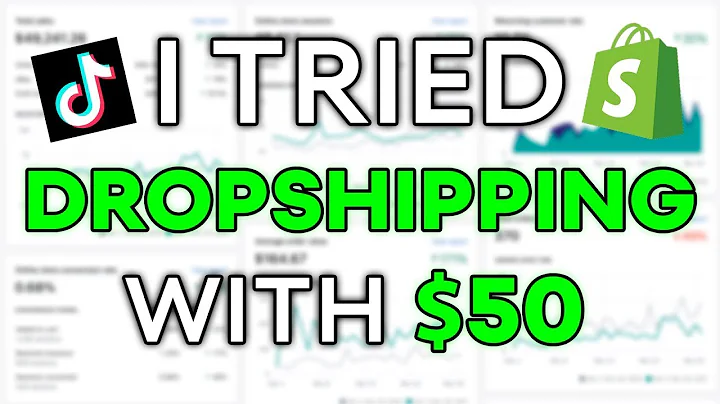Dropshipping vs Affiliate Marketing: Choose Your Online Business
Table of Contents:
- Introduction
- What is Drop Shipping?
- Pros and Cons of Drop Shipping
- What is Affiliate Marketing?
- Pros and Cons of Affiliate Marketing
- Comparing Drop Shipping and Affiliate Marketing
- Which One is Easier to Start?
- Which One is More Profitable?
- How to Choose Between Drop Shipping and Affiliate Marketing
- Conclusion
Drop Shipping vs Affiliate Marketing: Which Business Should You Start?
Introduction
In today's digital world, starting an online business has become increasingly popular. Two of the biggest business models that have gained significant attention are Drop Shipping and affiliate marketing. Both have their own advantages and disadvantages, and deciding which one to pursue can be a challenging task. In this article, we will explore the differences between Drop Shipping and affiliate marketing, analyze their pros and cons, and help you make an informed decision about which business model is right for you.
What is Drop Shipping?
Drop Shipping is a business model where you sell physical items from your own online store, such as a Shopify store, without having to keep an inventory. When a customer makes a purchase from your store, you simply order the item from a third-party supplier who will then ship the product directly to the customer. This eliminates the need for storage space, as well as the hassle of packaging and shipping products yourself. Drop Shipping allows you to focus on marketing and driving traffic to your store.
Pros and Cons of Drop Shipping
Like any business model, Drop Shipping has its pros and cons. On the positive side, Drop Shipping allows you to own your own business and sell to a global market. You have control over the products you sell and can easily switch between different products to find what works best. When you find a profitable product, you can scale your business by investing in advertising and driving more traffic to your store.
However, Drop Shipping also has its challenges. The cost of starting a Drop Shipping business can be high, as you need to invest in tools, such as a Shopify store, and allocate a significant budget for paid advertising. Cash flow is another consideration, as you need to purchase products from suppliers before receiving payment from customers. Additionally, profit margins in Drop Shipping can be small, requiring high sales volumes to generate substantial income. Finally, handling customer service can be time-consuming, as you are responsible for addressing any issues that arise.
What is Affiliate Marketing?
Affiliate marketing is a business model where you promote other people's products and earn a commission for every sale that is made as a result of your recommendation. Unlike Drop Shipping, you don't need to handle inventory or customer service. Instead, you focus on generating leads and driving traffic to the affiliate product's sales page. The product owner takes care of shipping, customer support, and all other aspects of the sale.
Pros and Cons of Affiliate Marketing
One of the major advantages of affiliate marketing is the low cost of entry. You don't need to invest in inventory or worry about shipping, which significantly reduces the initial investment required. Since you are selling digital products, profit margins can be higher compared to Drop Shipping, as there are no physical production costs. Affiliate marketing also allows for flexibility, as you can easily switch between products and niches to find what works best for you.
However, affiliate marketing is not without its drawbacks. As an affiliate marketer, you have little control over the product itself. If the product owner decides to make changes or discontinue the product, you have no control over these decisions. Additionally, while you don't have to handle customer service directly, any customer inquiries or issues will be directed to the product owner, which may impact your reputation as an affiliate marketer.
Comparing Drop Shipping and Affiliate Marketing
When comparing Drop Shipping and affiliate marketing, it's essential to consider factors such as startup costs, profit margins, scalability, and control. Drop Shipping requires a higher initial investment and has smaller profit margins compared to affiliate marketing. On the other hand, affiliate marketing has lower barriers to entry, higher profit potential, and fewer operational complexities.
Which One is Easier to Start?
In terms of ease of entry, affiliate marketing is generally considered easier to start compared to Drop Shipping. With affiliate marketing, you can begin promoting products and earning commissions with minimal upfront investment and less operational overhead. You don't need to worry about inventory management, shipping logistics, or customer support, allowing you to focus on driving traffic and converting leads into sales.
Which One is More Profitable?
While both Drop Shipping and affiliate marketing have the potential to be highly profitable, affiliate marketing tends to offer higher profit margins. With affiliate marketing, you can earn commissions ranging from 40% to 70% of the product price. In contrast, Drop Shipping typically has profit margins of around 10% to 15%. Additionally, affiliate marketing allows for scalability without the need for a large team, making it easier to generate substantial income.
How to Choose Between Drop Shipping and Affiliate Marketing
When deciding between Drop Shipping and affiliate marketing, it's crucial to consider your budget, resources, and personal preferences. If you have a significant budget, a high tolerance for operational complexities, and a desire to have more control over product selection, Drop Shipping may be the right choice for you. On the other hand, if you have a limited budget, prefer a simplified business model, and want higher profit margins, affiliate marketing may be the better option.
Conclusion
Choosing between Drop Shipping and affiliate marketing boils down to personal preference and individual circumstances. Both business models have their own advantages and challenges. Ultimately, it's essential to evaluate your resources, goals, and comfort level with operational complexities before making a decision. Regardless of your choice, starting an online business can be a rewarding endeavor if you are willing to put in the time, effort, and dedication required for success.















